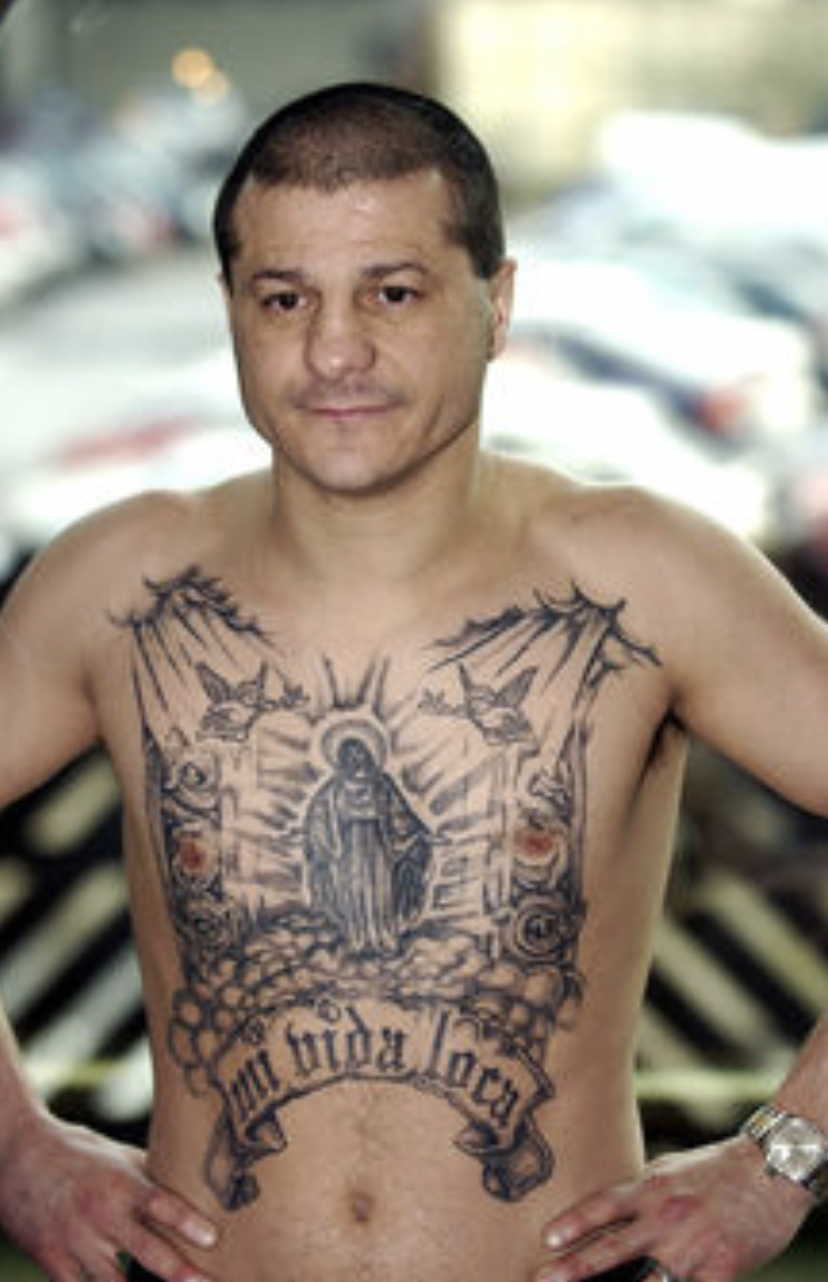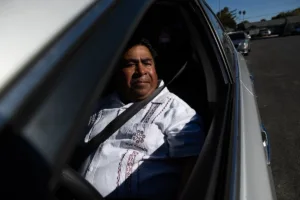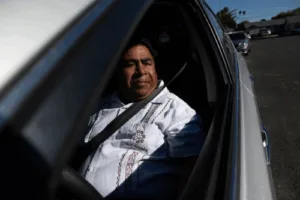Johnny Tapia Became a World Champion Boxer, that was Haunted by Death.
By. Franco

The seed of bitter tragedy was in his soul. Johnny Tapia’s life was more than a valley of tears: it was an unrelenting battle against a stalking death demon. The grim ripper struck early in Tapia’s life; his father was murdered while Tapia was still in the womb. Johnny was seven years old when the bus he was traveling on plunged over a 100-foot cliff. He was hurled out the window but miraculously survived. The shadow of death came for his mother a year later. She was raped and murdered in front of eight-year-old Tapia. Then he started boxing. If death was stalking him, he would prepare for the fight; he was a survivor. Boxing was a way of life for Tapia, it was where he belonged, and the ring was the safest place in the world for Tapia. The ring was the school where Tapia learned to conquer the fear of death, and this gave him an edge when he fought. Many of his opponents were instinctively aware of Tapia’s disregard for death. It is why so many of them were intimidated by Tapia in the ring. Boxing provided the fearless mentality that Tapia needed to face the bitterness of his destiny.
Tapia was gaining a reputation as a future star in boxing. Legendary trainers like Eddie Futch and Freddie Roach would train Tapia. It was precisely at the height of his boxing powers -his early twenties- when the bitter seed in his soul started germinating. Tapia turned to cocaine and alcohol to deal with the pain in his soul. All hell broke loose. Several times he was near death from overdoses, he survived. He started making regular trips to the county detention center, DWI’s and other incidents. He hit rock bottom when the boxing commissions suspended him from boxing because of his drug use. Tapia had taken refuge in boxing, and now that was lost too.
They say that angels come in different forms. For Tapia, the angel came in the form of Teresa, who would later become his wife. Under her loving care, he became a born-again Christian and sobered up. He started training again and was allowed to return to boxing. Still undefeated, Tapia won the world Junior Bantamweight title in his hometown of Albuquerque, New Mexico. Another great fighter had sprung up during Tapia’s absence from boxing, Danny Romero. A vicious knockout artist, Romero had blasted all opposition in the Junior Bantamweights, people wanted to see him mop the floor with Tapia. Many boxing fans outside New Mexico thought Tapia was just a no-good thug who needed a severe whipping that would retire him, and Romero was the kid to do that. This was a big fight, especially in Albuquerque. Romero, who was accustomed to intimidating his opponents, came up against the fearlessness of Tapia. When they got in the ring, Tapia had the psychological edge, he took Romero to a deep place that Romero had never been to, and Tapia won the fight. Tapia now had two World Titles in 1997, he gave up the Titles in 1998, moved up in weight and became the Bantamweight World Champion. Tapia would then lose the title to a Tejano from Fort Worth, Paulie Ayala. It was Tapia’s first loss. Tapia never admitted defeat. He always believed that the decision should have been his. Tapia’s fight with Ayala was considered to be 1999s Fight of the Year. After a vacation, Tapia returned and won another World Championship Title. This was his fourth World Title.

During this time, the lord of death took another shot at Tapia’s life. Some bizarre crazed person followed Tapia and shot at him several times for no discernible reason, bullets barely missing Tapia. Tapia survived the incident and focused on boxing moving up in weight to fight Ayala for a second time, losing a close decision. Tapia would eventually compete in the Featherweight division against Mexican legend Marco Antonio Barrera. Barrera completely dominated Tapia in that fight. After this fight, Tapia realized that his career was over and decided to retire. Death was near Tapia, and he was fighting for his life in the hospital after relapsing and overdosing on cocaine and alcohol. Tapia’s brother-in-law and nephew believed Tapia was not going to make it and rushed him to the hospital. It was they who would die in a traffic accident. Tapia survived again.
It was May 27, 2012, the anniversary of Tapia’s mother’s death. La huesuda (bony death) finally got its way. Tapia’s heart stopped beating, and heart disease was the cause: probably from damage caused by past drug use. He had survived 45 hard years living near death. The fight was over for the Champion. Tapia called his fate: “Mi Vida Loca.” My Crazy Life, because it didn’t make sense, it never made sense to him why he had been marked for tragedy so mercilessly, even as an innocent child. Why him?
Johnny Tapia’s death moved millions of boxing fans who mourned his death and prayed for him. At the Champion’s funeral this stoic Mexican song was sung:
Una cruz de madera de la más corriente
Esto es lo que pido cuando yo me muera
Yo no quiero lujos ni mesas de adobes
No quiero una caja que valga millones
Lo único que quiero es que canten canciones
Que se haga una gran fiesta la muerte de un pobre






